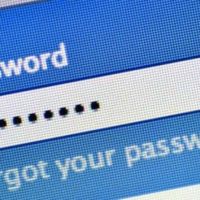Passwords are often the only thing that protects our information from the grasping hands of other people. Very few people know about data encryption, and even fewer of them actively use these technologies and algorithms. Frankly speaking, modern people are pretty negligent to information security issues, which results in hack attacks on their e-mail addresses and social networks accounts.
A recent study showed that in Europe only 24% of the residents use different passwords for different sites. The others use one or two passwords on all services where they are registered. So how can you protect yourself from hacking? Here are 5 basic tips which will help you.

1. Develop your own system of making passwords.
It sounds a bit complicated, but it is not so hard. You need only to remember one important rule – every password, no matter how complex and elusive it may appear, must have a certain meaning for you. For example, you are choosing a new password for your Facebook account. So, start it with “FB” or “Face” or “Book” and add other symbols and letters. And later you will immediately remember at least the beginning of the password, and all other characters will appear in memory just as quickly. Use this technique for other sites as well.
2. Do not use default passwords
Only a very lazy person hasn’t heeded this piece of advice, but it is still the most common mistake among users of any age – they use birth date or their own name as a password. Even if you do not want to follow the first advice, at least, do not make such a stupid mistake.
It is also absolutely necessary to use passwords that are impossible to guess, for example, “akgyaakbv”. It’s enough to not use dictionary words and to choose sets of letters and symbols in a different register. And the longer the password is, the harder it is to guess.
3. Secure all important cell phone numbers
The best way to protect your account from hacking is bind it to the cell phone number. This feature is implemented in many social networks, and, of course, the vast majority of users register their profiles, indicating their main (and usually the only) phone number. Many security experts strongly recommend having a separate cell phone number and switching all accounts to it. It is important that only you know about the existence of this number.
4. Do not store your passwords online
Another common mistake is the over-reliance on various Internet services which allow you to store personal data, e.g. cloud services. Many people often keep their passwords and even personal confidential documents in such virtual spaces. How can you trust Google and its Drive application, when it does not get out of the courtroom, participating in the processes for privacy infringement as a defendant?
If storing passwords in the cloud is the only viable alternative in your case, then at least use encryption software. There are different algorithms, both paid and free, and even the simplest encoding is enough to scare off a petty thief which may waste time for nothing.
5. Do not carry a list of passwords
It is not necessary to carry a list of passwords all the time. No matter if it is a special mobile app, or just a paper with all your passwords. Bags tend to get lost in public areas, and cell phones often fall right out of the pockets. And the one who will find your stuff will get all your passwords from all services.
The most reliable place to store passwords is your head. It is not so easy to get into it, so it is worth to use. Do not make attackers’ life easier, they do not deserve it.
